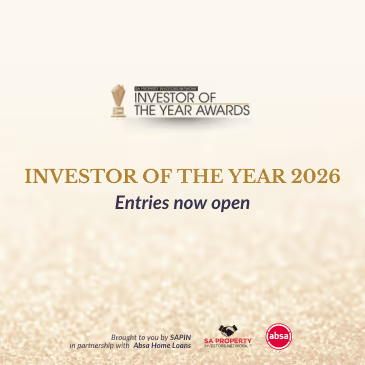Cape Town’s CBD Revival Driven by Small Business Energy
Top 3 Takeaways
- 94.8% of Cape Town CBD businesses are satisfied with conditions
- 186 new businesses opened in the CBD between 2022 and 2023
- CCID support, innovation, and location keep the inner city thriving
Small businesses are proving to be the heartbeat of Cape Town’s central business district (CBD), where a wave of entrepreneurial momentum is transforming the city’s economic and physical landscape.
According to the Cape Town Central City Improvement District (CCID) Q1 2025 Business Confidence Survey, business sentiment in the CBD is at its highest level since 2020. Of the 293 respondents, 94.8% said they were satisfied with current conditions, while two-thirds reported that the economic environment had improved over the past year.
This uptick is powered by a surge in owner-led businesses, who are revitalising underutilised spaces, creating jobs, and introducing fresh energy and ideas to the city centre.
CBD Property: A Catalyst for Growth and Innovation
The impact on the property market is tangible. Retail research by the CCID shows that the number of businesses in the CBD jumped from 3,116 in 2022 to 3,302 in 2023, a net gain of 186 businesses in just one year. From restaurants and sneaker stores to legal practices and wellness studios, the city centre is evolving into a mixed-use, vibrant hub.
Tasso Evangelinos, CEO of the CCID, notes, “Retailers in the CBD have demonstrated incredible resilience. Their willingness to adapt and innovate is now paying dividends, nearly 75% of businesses have a strong 12-month outlook.”
Why Cape Town’s Inner City Model Works
What sets Cape Town apart? In a word: ecosystem. Small businesses are thriving because they’re part of a well-supported, well-managed urban centre that encourages organic interaction between business, space, and community.
Colette MacLennan, owner of Bree Street’s The General Store, credits their survival during COVID to adaptability and their success today to location.
“No day is the same,” she says, “but our customer base is loyal, and our offering remains consistent.”
Having outgrown their original kitchen, they’ve now expanded into a production space in Roeland Street, adding a catering arm to their business.
Long-standing CBD retailer Richard Lemkus, owner of the iconic sneaker store Lemkus, believes the inner city is more than a place of commerce, it’s a cultural engine.
“The city has momentum again,” he says. “We’re part of something bigger. It's not just business, it’s connection, experience, and identity.”
Momentum, Safety, and the Role of the CCID
Developments like The Barracks building are breathing new life into heritage sites, attracting tenants ranging from Mike’s Sports and Officine Gullo to wellness studios like Sculpt Pilates. Creative adaptations such as turning former storage into fitness studios, reflect a new kind of property strategy: one rooted in mixed-use thinking and niche appeal.
MacLennan and Lemkus both highlight the role of the CCID in maintaining a safe, clean, and welcoming environment. “They’re not just visible they’re essential,” says Lemkus. “Their work gives us the confidence to invest.”
The Way Forward: Urban Collaboration
The Cape Town CBD is a case study in how mixed-use precincts, public-private partnerships, and entrepreneurial thinking can revitalise urban centres. With vacancy rates falling and optimism on the rise, the inner city is once again a proving ground not just for business, but for place-making that works.
“Cape Town’s CBD is where you want to be if you’re building something meaningful,” says Lemkus. “It’s real. It’s alive. And it’s only getting better.”













.avif)


.avif)

.avif)




.svg)





























.avif)
